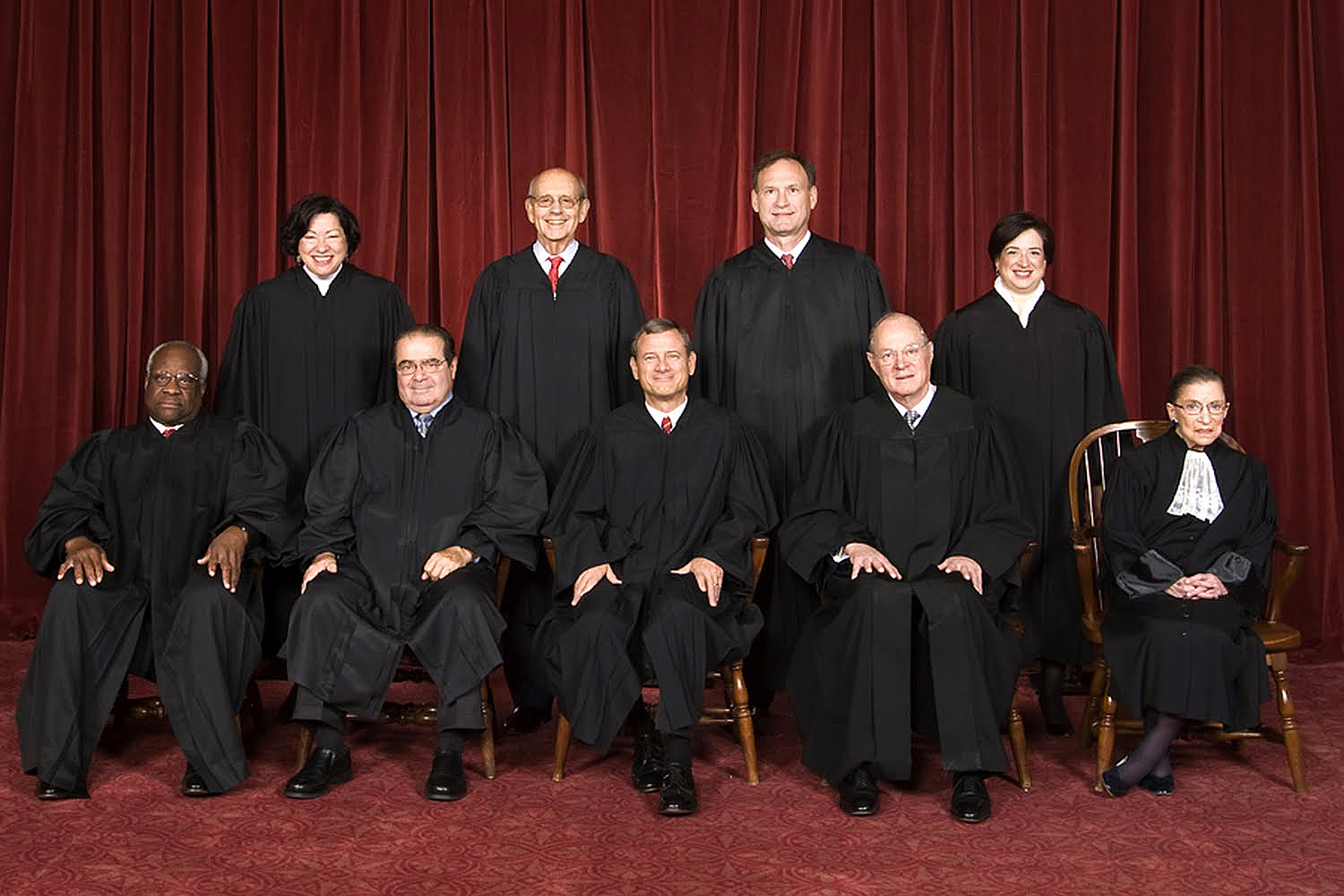If police want to rummage through a person’s cell phone and look at his wedding or family photographs; find out his doctors appointments; read his private emails or texts to friends and foes; gain access to work or doctors’ appointments or perhaps, get the list of personal contacts and memos – they need to get a warrant.
Citing the Fourth Amendment against unreasonable searches and seizures in its opinion, the U.S. Supreme Court send a loud message to law enforcement on Wednesday with its unanimous decision that cell phone searches require a warrant. Also the justices offered solutions to law enforcement concerns on how to keep defendants in custody from erasing cell phone data.
Before today’s decision, cell phones were fair game for police to search after an arrest. The government could get your digital data that could include videos and information on where a person shops or the places a person visits.
The decision sets up privacy rights in the digital age that include tablets and laptop computers, according to a story in the New York Times.
While the decision will offer protection to the 12 million people arrested every year, many for minor crimes, the New York Times story stated that its impact will most likely be much broader. The ruling almost certainly also applies to searches of tablet and laptop computers, and its reasoning may apply to searches of homes and businesses and of information held by third parties like phone companies, the Times stated.
“This is a bold opinion,” Orin S. Kerr, a law professor at George Washington University told the New York Times. “It is the first computer-search case, and it says we are in a new digital age. You can’t apply the old rules anymore.”
In its 38-page opinion, the justices even offered simple solutions
The U.S. Supreme Court Justices pointed to the obvious to underscore their decision about the difference between going through a person’s wallet and gleaning for digital data in a cell phone.
“Cell phones differ in both quantitative and qualitative sense from other objects that might be carried on an arrested person. Notably, modern cell phones have an immense storage capacity. Before cell phones, a search of a person was limited by physical realities and generally constituted only a narrow intrusion of privacy.” the justices stated.
Adding, “But cell phones can store millions of pages of text, thousands of pictures or hundreds of videos. This has interrelated privacy consequences.”
Here are more excerpts from today’s Riley v. California, Supreme Court decision:
- “A decade ago officers might have occasionally stumbled across a highly personal item such as a diary, but today many of more than 90 percent of American adults who own cell phones keep on their person a digital record of nearly every aspect of their lives.”
- “Digital data stored on a cell phone cannot itself be used as a weapon to harm an arresting officer or to effectuate the arrestee’s escape. Law enforcement officers remain free to examine the physical aspects of a phone to ensure that it will not be used as a weapon – say, to determine whether there is a razor blade hidden between the phone and its case. Once an officer has secured a phone and eliminated any potential physical threats, however, data on the phone can endanger no one.”
The U.S. Attorney’s Office and California focused their legal argument primarily on the 1969 Chimel v. California that laid the groundwork for most of the existing search doctrine, and its rationale: preventing the destruction of evidence and officer safety, the justices stated.
“The United States and California argue that information on a cell phone may nevertheless be vulnerable to two types of evidence destruction unique to digital data – remote wiping and data encryption.”
Adding, “Remote wiping occurs when a phone, connected to a wireless network, receives a signal that erases stored data. This can happen when a third party sends a remote signal or when a phone is preprogrammed to delete data upon entering or leaving certain geographic areas (so-called ‘geofencing.'”)
In response to that argument, the justices state: “We have also been given little reason to believe that either problem is prevalent.”
Noting that the U.S. Attorney’s Office and California only provided “a couple of anecdotal examples” of remote wiping trigged by an arrest.
The justices offered simple solutions to “remote wiping” by writing, “Remote wiping can be fully prevented by disconnecting a phone from the network.”
This is how to do this, the justices stated: “First, law enforcement can turn the phone off or remove the battery. Second, if they are concerned about encryption or other potential problems, they can leave a phone powered on and place it in an enclosure that isolates the phone from radio waves.”
The justices said the term “cell phone” is misleading.
“The term ‘cell phone’ is itself misleading shorthand; many of these devices are in fact minicomputers that also happen to have the capacity to be used as a telephone. They could just as easily be called cameras, video players, rolodexes, calendars, tape recorders, libraries, diaries, albums, televisions, maps or newspapers,” the justices stated.


